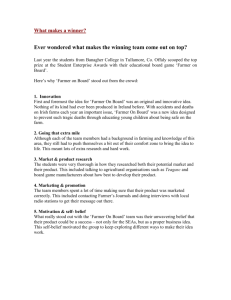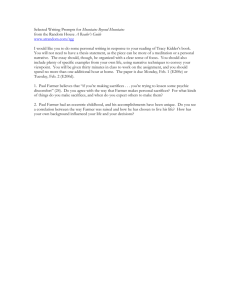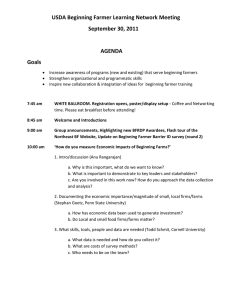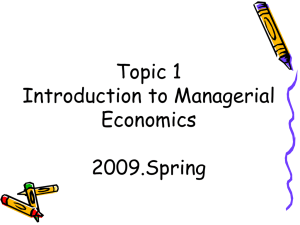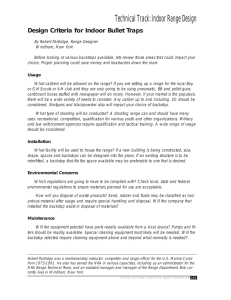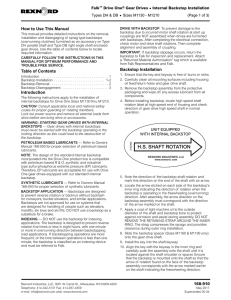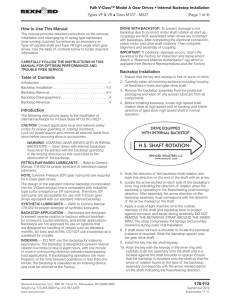Hazards of R&D and Adoption Delays from Water Policy Infrastructure
advertisement
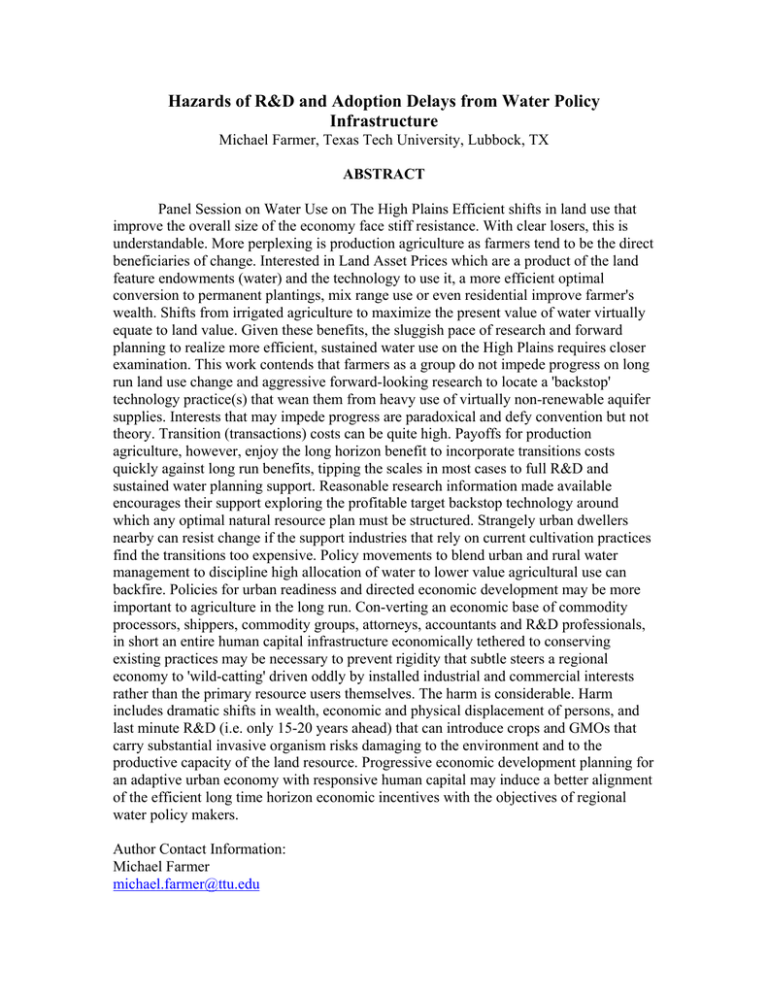
Hazards of R&D and Adoption Delays from Water Policy Infrastructure Michael Farmer, Texas Tech University, Lubbock, TX ABSTRACT Panel Session on Water Use on The High Plains Efficient shifts in land use that improve the overall size of the economy face stiff resistance. With clear losers, this is understandable. More perplexing is production agriculture as farmers tend to be the direct beneficiaries of change. Interested in Land Asset Prices which are a product of the land feature endowments (water) and the technology to use it, a more efficient optimal conversion to permanent plantings, mix range use or even residential improve farmer's wealth. Shifts from irrigated agriculture to maximize the present value of water virtually equate to land value. Given these benefits, the sluggish pace of research and forward planning to realize more efficient, sustained water use on the High Plains requires closer examination. This work contends that farmers as a group do not impede progress on long run land use change and aggressive forward-looking research to locate a 'backstop' technology practice(s) that wean them from heavy use of virtually non-renewable aquifer supplies. Interests that may impede progress are paradoxical and defy convention but not theory. Transition (transactions) costs can be quite high. Payoffs for production agriculture, however, enjoy the long horizon benefit to incorporate transitions costs quickly against long run benefits, tipping the scales in most cases to full R&D and sustained water planning support. Reasonable research information made available encourages their support exploring the profitable target backstop technology around which any optimal natural resource plan must be structured. Strangely urban dwellers nearby can resist change if the support industries that rely on current cultivation practices find the transitions too expensive. Policy movements to blend urban and rural water management to discipline high allocation of water to lower value agricultural use can backfire. Policies for urban readiness and directed economic development may be more important to agriculture in the long run. Con-verting an economic base of commodity processors, shippers, commodity groups, attorneys, accountants and R&D professionals, in short an entire human capital infrastructure economically tethered to conserving existing practices may be necessary to prevent rigidity that subtle steers a regional economy to 'wild-catting' driven oddly by installed industrial and commercial interests rather than the primary resource users themselves. The harm is considerable. Harm includes dramatic shifts in wealth, economic and physical displacement of persons, and last minute R&D (i.e. only 15-20 years ahead) that can introduce crops and GMOs that carry substantial invasive organism risks damaging to the environment and to the productive capacity of the land resource. Progressive economic development planning for an adaptive urban economy with responsive human capital may induce a better alignment of the efficient long time horizon economic incentives with the objectives of regional water policy makers. Author Contact Information: Michael Farmer michael.farmer@ttu.edu
